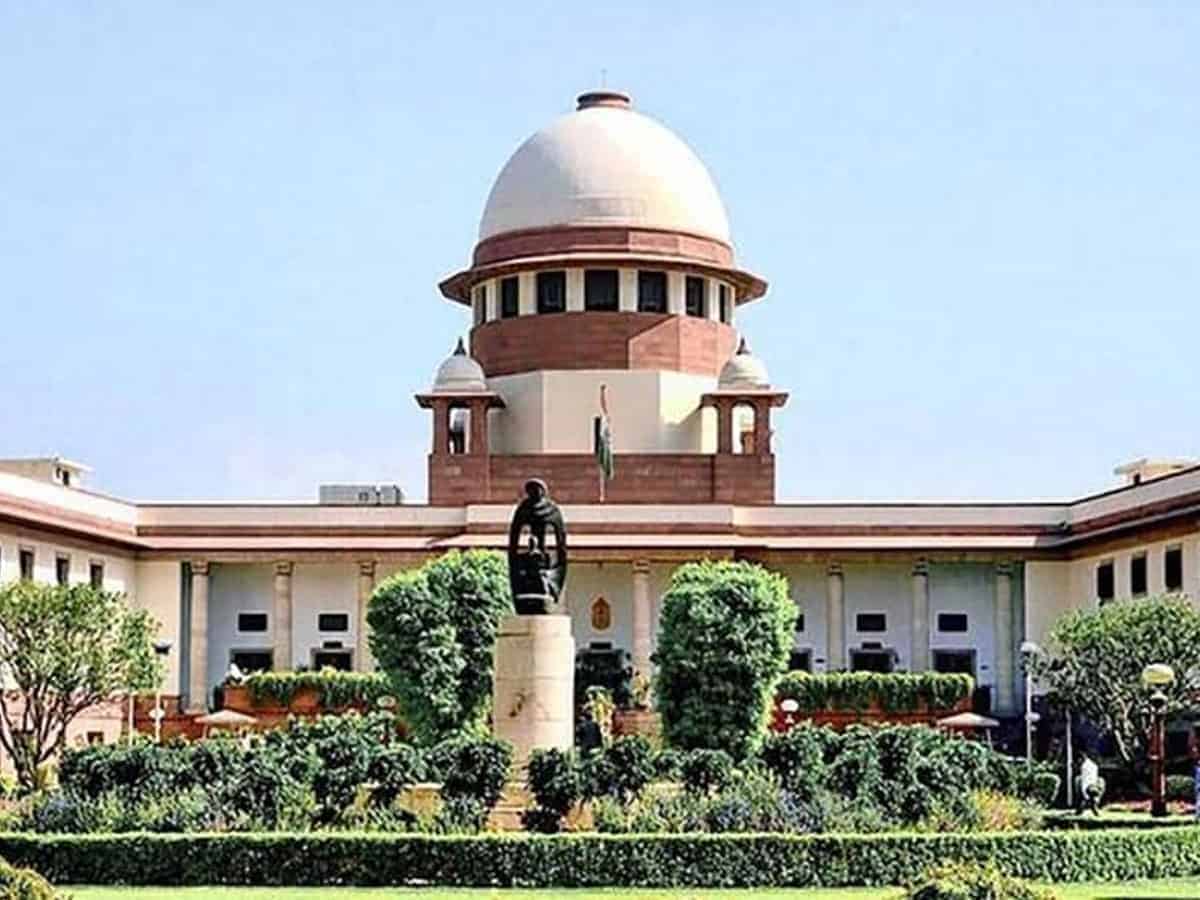
New Delhi: The Supreme Court on Thursday ordered that appointment to the posts of Chief Election Commissioner (CEC) and the Election Commissioners (EC) should be done by the President on the advice of a committee consisting of the Prime Minister, the Leader of Opposition, and the Chief Justice of India.
The top court noted that a pliable Election Commission, an unfair and biased overseer of the foundational exercise of adult franchise, which lies at the heart of democracy, who obliges the powers that be, perhaps offers the surest gateway to acquisition and retention of power.
A five-judge constitution bench, headed by Justice K.M. Joseph and comprising Justices Ajay Rastogi, Aniruddha Bose, Hrishikesh Roy, and C. T. Ravikumar, said: “We are concerned with and the devastating effect of continuing to leave appointments in sole hands of the executive on fundamental values, as also the fundamental rights, we are of the considered view that the time is ripe for the court to lay down norms.”
“We declare that as far as appointment to the posts of Chief Election Commissioner and the Election Commissioners are concerned, the same shall be done by the President of India on the basis of the advice tendered by a Committee consisting of the Prime Minister of India, the Leader of the Opposition in the Lok Sabha and, in case, there is no such leader, the leader of the largest party in the opposition in the Lok Sabha having the largest numerical strength, and the Chief Justice of India. This norm will continue to hold good till a law is made by the Parliament.”
The bench, in its 378-page judgment, said there cannot be any doubt that the Election Commission is to perform the arduous and unenviable task of remaining aloof from all forms of subjugation by and interference from the executive. “One of the ways, in which, the executive can bring an otherwise independent body to its knees, is by starving it off or cutting off the requisite financial wherewithal and resources required for its efficient and independent functioning,” it noted.
Making an appeal for a permanent secretariat for the EC, the bench said that a vulnerable commission may cave in to the pressure from the executive and, thus, it would result in an insidious but veritable conquest of an otherwise defiant and independent commission.
Emphasising on Parliament making a law, the bench said the vacuum exists on the basis that unlike other appointments, it was intended all throughout that appointment exclusively by the executive was to be a mere transient or stop gap arrangement and it was to be replaced by a law made by the Parliament taking away the exclusive power of the executive. “This conclusion is clear and inevitable and the absence of law even after seven decades points to the vacuum,” it added.
Justice Joseph, who authored the judgment on behalf of the bench, said: “Criminalisation of politics, with all its attendant evils, has become a nightmarish reality. The faith of the electorate in the very process, which underlies democracy itself, stands shaken. The impact of ‘big money’ and its power to influence elections, the influence of certain sections of media, makes it also absolutely imperative that the appointment of the Election Commission, which has been declared by this court to be the guardian of the citizenry and its fundamental rights, becomes a matter, which cannot be postponed further.”
The bench added that criminalisation of politics, a huge surge in the influence of money power, the role of certain sections of the media where they appear to have forgotten their invaluable role and have turned unashamedly partisan, call for the unavoidable and unpostponable filling up of the vacuum.
“Even as it is said that justice must not only be done but seen to be done, the outpouring of demands for an impartial mode of appointment of the members require, at the least, the banishing of the impression, that the Election Commission is appointed by less than fair means,” noted the bench.
It added that political parties undoubtedly would appear to betray a special interest in not being forthcoming with the law and there is a crucially vital link between the independence of the Election Commission and the pursuit of power, its consolidation and perpetuation.
“As long as the party that is voted into power is concerned, there is, not unnaturally, a near insatiable quest to continue in the saddle. A pliable Election Commission, an unfair and biased overseer of the foundational exercise of adult franchise, which lies at the heart of democracy, who obliges the powers that be, perhaps offers the surest gateway to acquisition and retention of power,” said the bench.
The bench noted that the demand for putting in place safeguards to end the pernicious effects of the exclusive power being vested with the executive to make appointment to the Election Commission, has been the demand of political parties across the board.
“Successive governments have, irrespective of their colour, shied away from undertaking, what again we find was considered would be done by Parliament, by the founding fathers,” it added.
The top court’s judgment came on a batch of petitions filed by Anoop Baranwal, Ashwini Kumar Upadhyay, NGO Association for Democratic Reforms and Jaya Thakur seeking an independent mechanism for appointment of CEC and ECs.
